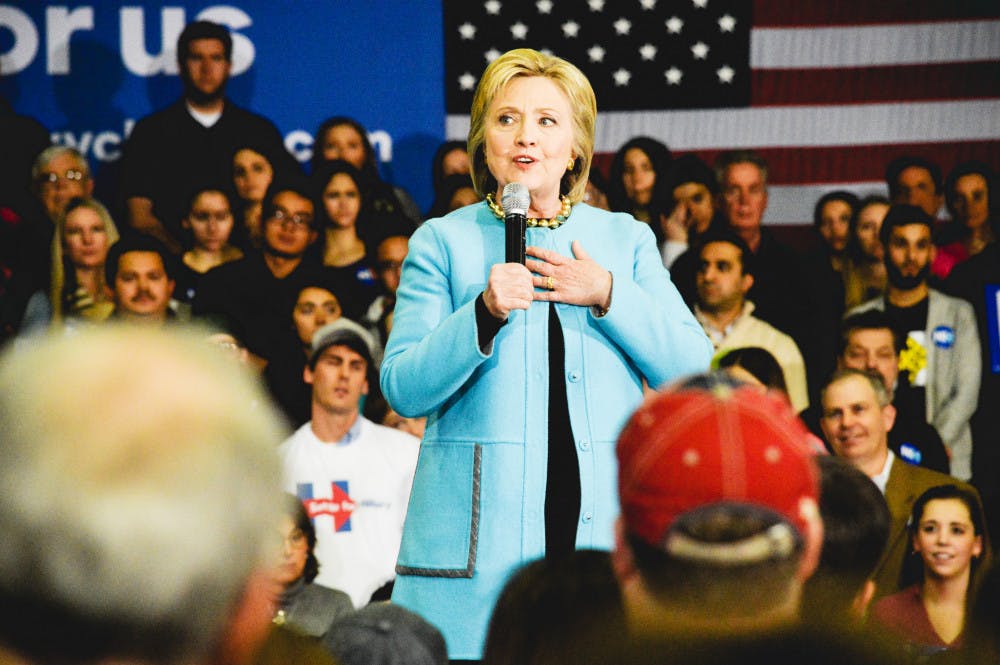Last night in a room of about thirty students, the Brown Democrats hosted its “Candidate Political Forum” in Wilson Hall to present the Democratic Party’s presidential candidates — Sen. Bernie Sanders, D-VT, and former Secretary of State Hillary Clinton — and the stances they take on various issues.
The Brown Democrats do not endorse a particular candidate and thought it was important to hear both sides of the Democratic race, said Jeffrey Salvadore, president of the Brown Democrats, in his introduction.
Brown Students for Hillary leaders Elena Saltzman ’16 and Emma Dickson ’16 presented their candidate first, followed by the leaders of Students for Bernie, Aidan Calvelli ’19, Roro Oshobe ’19 and Abhishek Sharma ’17.
The leaders of each group gave a brief biographical background of their respective candidates and the policies each would enact as president.
Clinton was born into a middle-class conservative household in a Chicago suburb. She graduated from Wellesley College in 1969 and Yale Law School in 1973. By this time, Clinton had switched from the Republican party to the Democratic party, a decision that was influenced by the Civil Rights Movement.
Sanders was born into a Polish and Jewish family in Brooklyn, New York. He attended Brooklyn College for a year before transferring to the University of Chicago and graduating in 1964. At the UChicago, Sanders led one of the first sit-ins during the Civil Rights Movement.
Both student groups discussed their respective candidates’ stances on healthcare, Wall Street regulation and foreign policy. For the most part, the candidates agree on what realms of the country must change and require the most assistance, but they differ in execution. For example, Clinton would aim to make community college free and four-year public universities debt-free for students. In comparison, Sanders would strive to make all public universities free.
On minimum wage, Sanders wants to push the current $7.25 wage to $15 by 2020. Clinton wants to raise it to $12 while pushing for $15 in some areas, “understanding that minimum wage in New York means something different than in rural Minnesota,” Saltzman said.
Sanders wants to remedy the 29 million Americans who remain without healthcare coverage and “really implement universal healthcare,” Calvelli said.
“It would cost a lot of money in the short run, but ultimately Bernie believes that is the work that is necessary and will pay huge dividends down the line,” he said.
Both candidates are strong supporters of reproductive rights, the group leaders said. Clinton hopes to implement new federal support for sexual assault prevention programs in secondary schools and higher education.
Both groups also included quirky facts about their respective candidates. For example, Sanders contributed to a folk album called “We Shall Overcome,” on which “thankfully he does not sing,” Calvelli said. Clinton, on the other hand, describes herself as a “pantsuit aficionado,” Saltzman said.





